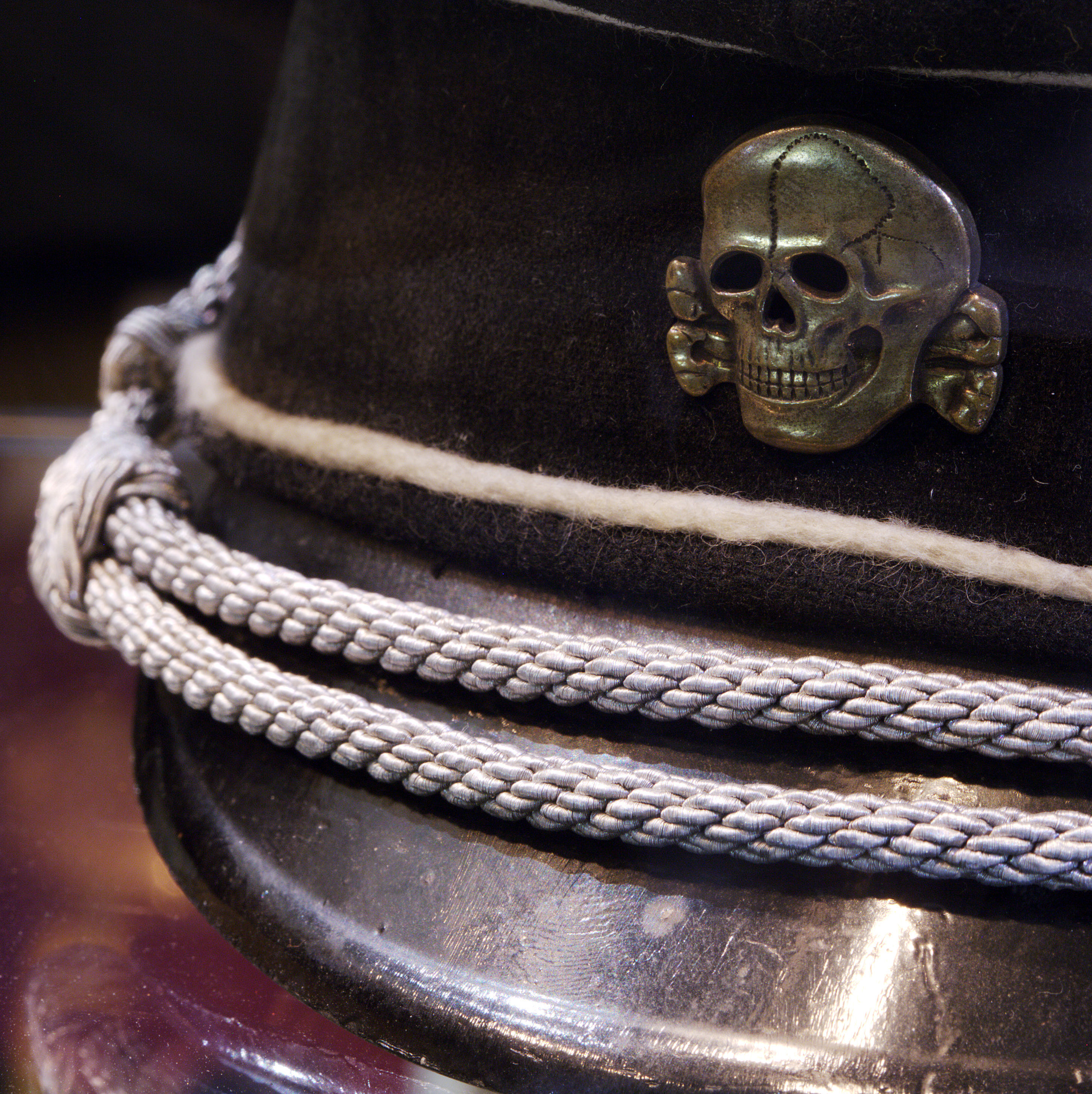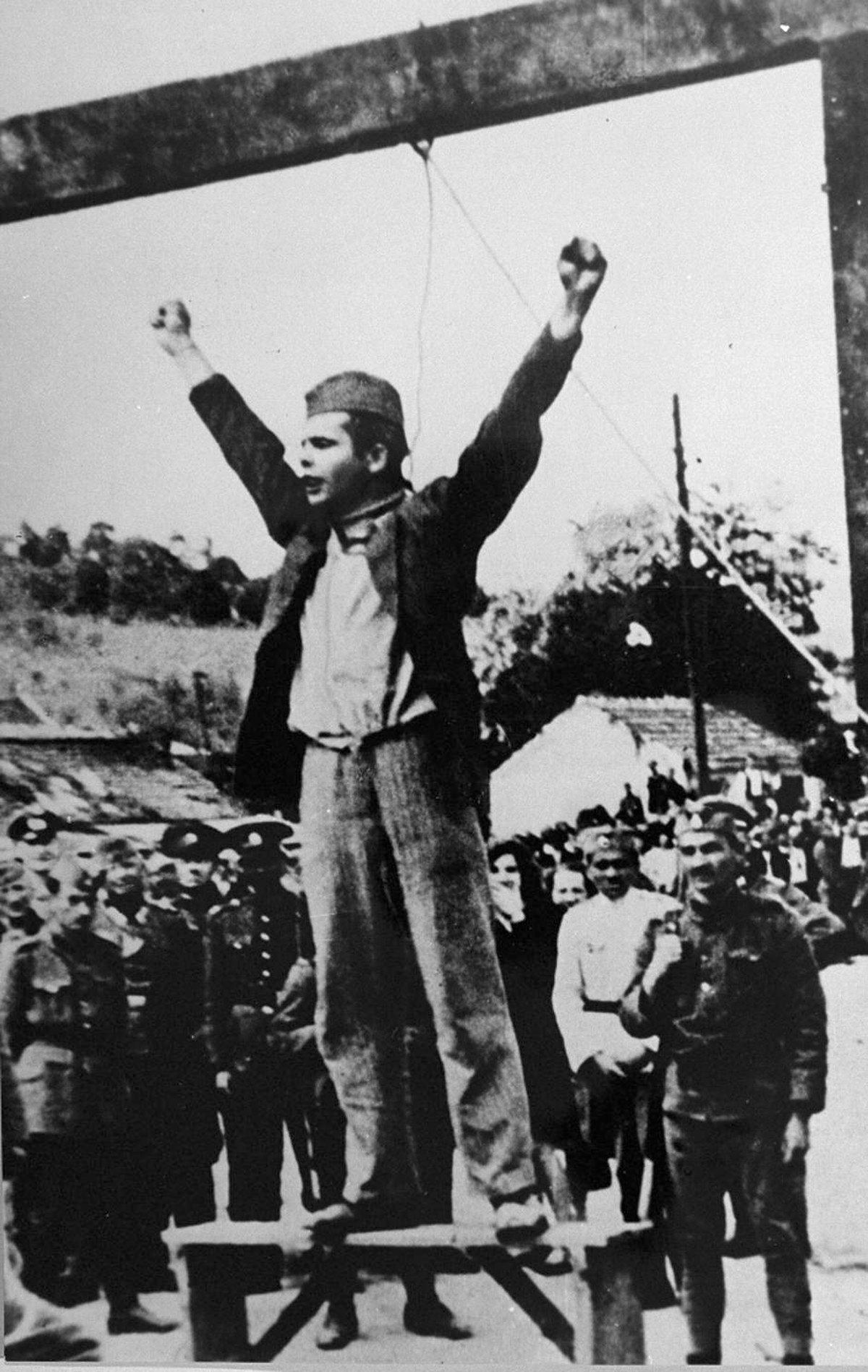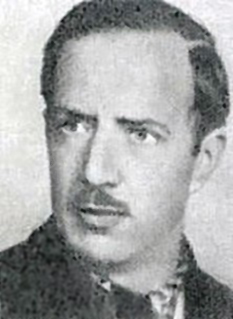|
Underground Court
Underground Court ('' pl, Sądy podziemne'') were World War II underground courts in occupied Poland, organized by the Polish government in exile, Polish Government-in-Exile. The courts determined punishments for Polish people, citizens of Poland who were subject to Polish law before the war. History After the Invasion of Poland, Polish Defense War of 1939, the German authorities of the General Government mobilized all the pre-war Polish policemen to the German service. The so-called Blue Police, Navy-Blue Police (''Policja granatowa'', nicknamed after the color of their uniforms) were used as an auxiliary unit of the Gestapo and Kripo, yet they had no means of executing law and order in the occupied country. At the same time, the German police forces and courts were more interested in persecution of Jews and members of the Polish intelligentsia and Resistance during World War II, underground rather than common criminals. First underground, ad hoc courts were created alongside ... [...More Info...] [...Related Items...] OR: [Wikipedia] [Google] [Baidu] |
World War II
World War II or the Second World War, often abbreviated as WWII or WW2, was a world war that lasted from 1939 to 1945. It involved the vast majority of the world's countries—including all of the great powers—forming two opposing military alliances: the Allies and the Axis powers. World War II was a total war that directly involved more than 100 million personnel from more than 30 countries. The major participants in the war threw their entire economic, industrial, and scientific capabilities behind the war effort, blurring the distinction between civilian and military resources. Aircraft played a major role in the conflict, enabling the strategic bombing of population centres and deploying the only two nuclear weapons ever used in war. World War II was by far the deadliest conflict in human history; it resulted in 70 to 85 million fatalities, mostly among civilians. Tens of millions died due to genocides (including the Holocaust), starvation, ma ... [...More Info...] [...Related Items...] OR: [Wikipedia] [Google] [Baidu] |
Informant
An informant (also called an informer or, as a slang term, a “snitch”) is a person who provides privileged information about a person or organization to an agency. The term is usually used within the law-enforcement world, where informants are officially known as confidential human sources (CHS), or criminal informants (CI). It can also refer pejoratively to someone who supplies information without the consent of the involved parties."The Weakest Link: The Dire Consequences of a Weak Link in the Informant Handling and Covert Operations Chain-of-Command" by M Levine. ''Law Enforcement Executive Forum'', 2009 The term is commonly used in politics, industry, entertainment, and academia. In the United States, a confidential informant or "CI" is "any individual who provides useful and credible information to a law enforcement agency regarding felonious criminal activities and from whom the agency expects or intends to obtain additional useful and credible information regardin ... [...More Info...] [...Related Items...] OR: [Wikipedia] [Google] [Baidu] |
Defunct Courts
{{Disambiguation ...
Defunct (no longer in use or active) may refer to: * ''Defunct'' (video game), 2014 * Zombie process or defunct process, in Unix-like operating systems See also * * :Former entities * End-of-life product * Obsolescence Obsolescence is the state of being which occurs when an object, service, or practice is no longer maintained or required even though it may still be in good working order. It usually happens when something that is more efficient or less risky r ... [...More Info...] [...Related Items...] OR: [Wikipedia] [Google] [Baidu] |
Poland In World War II
World War II or the Second World War, often abbreviated as WWII or WW2, was a world war that lasted from 1939 to 1945. It involved the vast majority of the world's countries—including all of the great powers—forming two opposing military alliances: the Allies and the Axis powers. World War II was a total war that directly involved more than 100 million personnel from more than 30 countries. The major participants in the war threw their entire economic, industrial, and scientific capabilities behind the war effort, blurring the distinction between civilian and military resources. Aircraft played a major role in the conflict, enabling the strategic bombing of population centres and deploying the only two nuclear weapons ever used in war. World War II was by far the deadliest conflict in human history; it resulted in 70 to 85 million fatalities, mostly among civilians. Tens of millions died due to genocides (including the Holocaust), starvation, massa ... [...More Info...] [...Related Items...] OR: [Wikipedia] [Google] [Baidu] |
Operacja Główki
Operation Heads ( pl, Operacja Główki) was the code name for a series of assassinations of Nazi officials by the World War II Polish Resistance. Those targeted for assassination had been sentenced to death by Polish Underground Special Courts for crimes against Polish citizens during the World War II German occupation of Poland. The operation's code name, literally "Operation Little Heads", was a sardonic reference to the ''Totenkopf'' ("Death's Head") insignia on Nazi German SS uniforms and headgear. Background Operation Heads was the response of Polish Resistance fighters of the Home Army to Nazi terror in Poland. On the streets of Polish cities, the non-Jewish population was targeted by the ''łapanka'' policy, in which Nazi forces indiscriminately rounded up, kidnapped and murdered civilians. In Warsaw, between 1942 and 1944, there were approximately 400 daily victims of ''łapanka''. Tens of thousands of these victims were killed in mass executions, including an estima ... [...More Info...] [...Related Items...] OR: [Wikipedia] [Google] [Baidu] |
Państwowy Korpus Bezpieczeństwa
Państwowy Korpus Bezpieczeństwa (Polish for "National Security Corps", abbreviated ''PKB''; sometimes also called ''Kadra Bezpieczeństwa'') was a Polish underground police force organized under German occupation during World War II by the Polish Home Army and Government Delegation for Poland. It was trained as the core of a future police force for a planned Polish all-national uprising, and for after Poland's liberation. The Corps' first commander was Lt. Col. Marian Kozielewski. He was later replaced by Stanisław Tabisz. In October 1943 the ''PKB'' had 8,400 officers; by early 1944 the number had grown to almost 12,000. The PKB was created by the Department of the Internal Affairs of the Delegate's Office in 1940, mostly from members of the pre-war Polish police and volunteers. PKB carried out investigation and criminal intelligence duties as well as gathered reports of the Gestapo and Kripo in the General Government. It enforced the verdicts prepared by the Directorate ... [...More Info...] [...Related Items...] OR: [Wikipedia] [Google] [Baidu] |
Szmalcownik
Szmalcownik (); in English, also sometimes spelled shmaltsovnik) is a pejorative Polish slang expression that originated during the Holocaust in Poland in World War II and refers to a person who blackmailed Jews who were in hiding, or who blackmailed Poles who aided Jews during the German occupation. By stripping Jews of their financial resources, blackmailers added substantially to the danger that Jews and their rescuers faced and increased their chances of getting caught and killed. In the capital of Poland, Warsaw, some 3,000–4,000 people acted as blackmailers and informants. In the summer of 1942, ''Żegota'', a Polish underground organization dedicated to aiding the Jews, requested that the Polish Underground State intensifies its efforts to stop the "blackmailer plague". From the summer of 1943 Home Army started carrying out death sentences for szmalcowniks in occupied Poland, executing over a dozen by the end of the war. While the executions did not eliminate the p ... [...More Info...] [...Related Items...] OR: [Wikipedia] [Google] [Baidu] |
Slavic Review
The ''Slavic Review'' is a major peer-reviewed academic journal publishing scholarly studies, book and film reviews, and review essays in all disciplines concerned with Russia, Central Eurasia, and Eastern and Central Europe. The journal's title, though pointing to its roots in Slavic studies, does not fully encompass the range of disciplines represented or peoples and cultures examined. History The journal has been published quarterly under the current name since 1961 by the American Association for the Advancement of Slavic Studies (since 2010 named Association for Slavic, East European, and Eurasian Studies, continuing the series published by the same association since 1941 under different names: ''Slavonic Year-Book. American Series'' (1941), ''Slavonic and East European Review. American Series'' (1943–1944), ''American Slavic and East European Review'' (1945–1961). Under the current name, the subtitle of the journal has changed over the years to reflect changing termi ... [...More Info...] [...Related Items...] OR: [Wikipedia] [Google] [Baidu] |
Polish Underground State
The Polish Underground State ( pl, Polskie Państwo Podziemne, also known as the Polish Secret State) was a single political and military entity formed by the union of resistance organizations in occupied Poland that were loyal to the Government of the Republic of Poland in exile in London. The first elements of the Underground State were established in the final days of the German and Soviet invasion of Poland, in late September 1939. The Underground State was perceived by supporters as a legal continuation of the pre-war Republic of Poland (and its institutions) that waged an armed struggle against the country's occupying powers: Nazi Germany and the Soviet Union. The Underground State encompassed not only military resistance, one of the largest in the world, but also civilian structures, such as justice, education, culture and social services. Although the Underground State enjoyed broad support throughout much of the war, it was not supported or recognized by the far ... [...More Info...] [...Related Items...] OR: [Wikipedia] [Google] [Baidu] |
Partisan (military)
A partisan is a member of an irregular military force formed to oppose control of an area by a foreign power or by an army of military occupation, occupation by some kind of insurgent activity. The term can apply to the field element of resistance movements. The most common use in present parlance in several languages refers to Resistance during World War II, occupation resistance fighters during World War II, especially under the Yugoslav Partisans, Yugoslav partisan leader Josip Broz Tito. History before 1939 The initial concept of partisan warfare involved the use of militia , troops raised from the local population in a war zone (or in some cases regular forces) who would operate behind enemy front line , lines to disrupt communications, seize posts or villages as forward-operating bases, ambush convoys, impose war taxes or contributions, raid logistical stockpiles, and compel enemy forces to disperse and protect their base of operations. George Satterfield has analyse ... [...More Info...] [...Related Items...] OR: [Wikipedia] [Google] [Baidu] |
Propaganda
Propaganda is communication that is primarily used to influence or persuade an audience to further an agenda, which may not be objective and may be selectively presenting facts to encourage a particular synthesis or perception, or using loaded language to produce an emotional rather than a rational response to the information that is being presented. Propaganda can be found in news and journalism, government, advertising, entertainment, education, and activism and is often associated with material which is prepared by governments as part of war efforts, political campaigns, health campaigns, revolutionaries, big businesses, ultra-religious organizations, the media, and certain individuals such as soapboxers. In the 20th century, the English term ''propaganda'' was often associated with a manipulative approach, but historically, propaganda has been a neutral descriptive term of any material that promotes certain opinions or ideologies. Equivalent non-English terms have also la ... [...More Info...] [...Related Items...] OR: [Wikipedia] [Google] [Baidu] |
Bureau Of Information And Propaganda
The Bureau of Information and Propaganda of the Headquarters of Związek Walki Zbrojnej, later of Armia Krajowa ( pl, Biuro Informacji i Propagandy (Komendy Głównej Związku Walki Zbrojnej - Armii Krajowej) - in short: ''BIP''), a conspiracy department created in spring 1940 during the German occupation of Poland, inside the Związek Walki Zbrojnej, then of the Supreme Command of Armia Krajowa (as 6th Department). Initially, its commander was Major Tadeusz Kruk-Strzelecki, then Colonel Jan Rzepecki pseudonym "Wolski" or "Prezes". Until the end of 1940, his deputy was Hipolit Niepokólczycki, while since 1944 until January 1945, Captain Kazimierz Moczarski. Tasks of BIP included informing of Polish community activities by the Polish Government in London, documenting activities of the German occupiers, psychological warfare against Nazi propaganda, consolidation of solidarity in the fight for independence of the Polish nation, collecting of information, reports and orders. BIP p ... [...More Info...] [...Related Items...] OR: [Wikipedia] [Google] [Baidu] |






